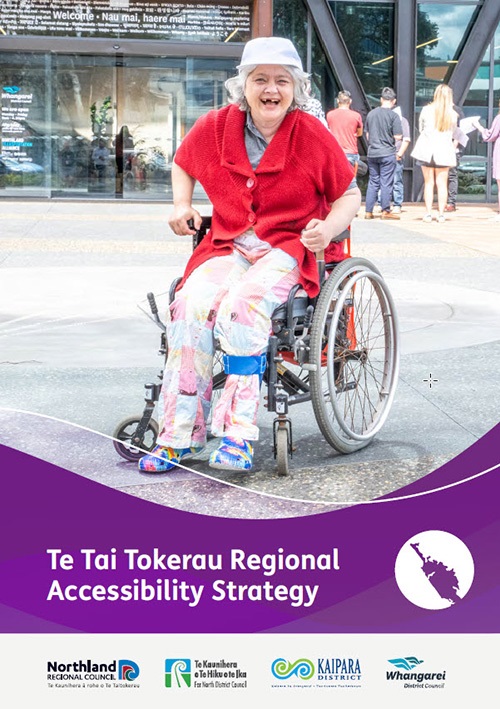The Te Tai Tokerau Regional Accessibility Strategy was developed as a shared project by the four councils of Te Tai Tokerau (Whangarei District Council, Kaipara District Council, Far North District Council and Northland Regional Council), together with a working group made up of Northlanders with access needs.
The strategy gives Te Tai Tokerau a shared vision, values, outcomes and actions to improve accessibility and the experiences of people with access needs. It covers what we can do to make Te Tai Tokerau more:
- Inclusive: If something is inclusive, everyone can take part.
- Accessible: If something is accessible, everyone can use it.
The plan also serves as a strategic framework for each individual council to develop their own implementation or action plans, which will be made available on individual council websites when ready.

Te Tai Tokerau Regional Accessibility Strategy (PDF, 3MB)
More information is available on the Northland Regional Council website, including access to the strategy in te reo Māori, Braille, audio, large print, Easy Read and TellMe:
Northland Regional Council (nrc.govt.nz)